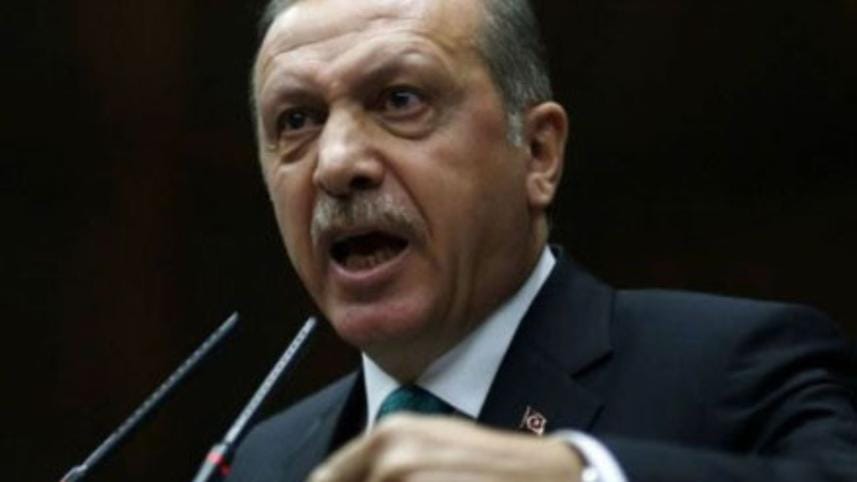Is it time to rethink our Pak-Turkey policy?

It is said that foreign policies should not be dictated by the heart but by the head. And I believe that that precept must always predominate our foreign policy formulation. But there comes a time and a situation which compels a nation to renege on a concept, and one that is hallowed by the realists. Is this such a time for us to consider whether we continue to do business as usual and at the current level with countries that have slighted our most treasured national value – the Liberation War, and trampled on our sentiments, by taking the sides of people tried and convicted by a legally established court, under the legal provisions of the country and through a due process of law, on charges of crimes against humanity?
And it is not an 'Islamist scholar' who was hanged on May10 but a war criminal that had helped a marauding and rapacious military to perpetrate the worst genocide since the Second World War. It is a pity that the world has not recognised the killings as genocide, as yet, and like many other definitions that world bodies propound from time to time, the definition of genocide as it is narrated today beats our imagination. The killings were carried out following the butcher Tikka Khan's directive that in 'East Pakistan" it was not people but the land that Pakistan was interested in. And if that was not the motivation for the killers to launch a decimation programme then what was? And those who are being called to answer for their deeds then had helped perpetuate the military occupation, and plan and perpetrate the killings.
Pakistan's position is predictable and we should not be surprised by it. In fact the government of Pakistan by taking the position it has on the trial and the punishments have only confirmed the fact that those convicted were their associates in their crime against humanity that its army had perpetrated in Bangladesh. By extolling the role of the war criminals in 1971 the Pakistan government has helped prove once again their complicity in turning Bangladesh into a killing field. Their position on the Liberation War was not merely ideological. They went as far as to ensure that their ideological conviction was established through force. And when Pakistan says of Nizami, "His only sin was upholding the constitution and laws of Pakistan" it forgets the fact that neither the writ of the constitution of Pakistan nor its laws was applicable to Bangladesh after 26 of March and even more so after the 17th of April 1971. And what law of any civilised country allows killing of innocent people?
The Pakistan government's means of addressing a political issue and political dissension has been always violent. The Bangladesh issue is a glaring case in point. But unbeknownst to most of the world the Pakistan government is replicating at this very moment another Bangladesh in Baluchistan, an act that was described almost a decade ago by Selig Harrison as "slow-motion genocide." By rooting for killers and painting the trial process as flawed the Pakistan government cannot hide its misdeeds and should apologise for that.
Our relations with the people of Turkey predate by many years the birth of Pakistan. It is historical and fraternal. Thus, Turkey's stand on the issue of trial and punishment of war criminals echoing Pakistan's is baffling. Or is this a very natural position of a very friendly country of Pakistan but of course with a common history of genocidal acts, one very recent and the other a century ago.
We find it difficult to fathom Erdogan's rationale for the position he has taken on the trial of the war criminals from the very beginning. Although he had displayed the same attitude as prime minister, and his predecessor president's action at that time did not go beyond a formal letter to the Bangladesh government requesting not to carry out the punishments, Erdogan has gone many steps ahead. The Turkish ambassador has been summoned home 'for consultation' and reportedly, its embassy in Dhaka has stopped issuing visa to intending visitors to that country. And what is seen as many as a diplomatic slur, our ambassador to Ankara was left out of the list of invitees to Erdogan's daughter's marriage. And to cap it all, he has lashed out at Europe for what he says its silence over the hanging.
Erdogan may vent his spleen as much as he likes on Europe but his position on the trial displays a callous disregard for history, not a lack of knowledge of it. It is an insult to the martyrs of our liberation war and our mothers and sisters who were subjected to repression in 1971, to term Nizami as a 'martyr.' Sanctifying a crime reduces those who are doing so to the rank of those criminals, even more so when that crime pervades the collective psyche of a nation. It is, therefore, time for our government to take a hard look as to how it would conduct its business with these countries in future.
The writer is Associate Editor, The Daily Star.




 For all latest news, follow The Daily Star's Google News channel.
For all latest news, follow The Daily Star's Google News channel.
Comments